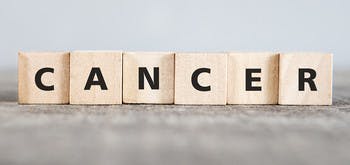Cancer is a word that many of us know too well.
Whether you’ve been diagnosed with cancer or are a family member, friend, or caregiver to someone who has been diagnosed, this terrible disease can impact everyone. But there is hope. Thanks to advancements in medical treatments, people diagnosed with cancer — nearly 15 million people in the United States alone — are living longer. [1]
Delaware offers many great programs for patients, families, and survivors.
- Cancer Care Coordinators can help you and your family with resources and information related to your cancer diagnosis, treatment, and follow-up.
- The Delaware Cancer Treatment Program can help pay for the treatments that are needed. If you’ve been diagnosed with cancer, you may be eligible for assistance with covering cancer-treatment costs for up to two years.
- The Cancer Thriving and Surviving self-management program provides those affected by cancer with tools they need to live a healthier life. Sign up today.
- LIVESTRONG at the YMCA incorporates all aspects of healthy living and exercise to enhance healing and quality of life for those living with cancer, or who had cancer. Find a location near you.
Life after cancer is going to be different. You may be wondering what’s next. We can teach you what you can do to improve your physical and emotional health, and help you find the information you need to stay healthy and have a great life. View more resources.
Other Healthy Highlights:
Get out and get active. Adopting a healthy lifestyle can make you feel better and lower risk of disease. Check out Prime Hook in Sussex County or use our Wellness Map to discover local parks and trails.
Don’t wait. Get screened. Talk to your health care provider. Know when and how often you should be screened for cancer. Whether or not you have insurance, a nurse navigator can schedule a screening for you.
July is UV Safety Month. Long-term sun exposure, frequent sunbathing, use of indoor tanning beds, and bad sunburns all increase your chance of developing skin cancer. We want to make sure you protect your skin and stay sun-safe all year long. Get tips on how to reduce your risk of skin cancer and skin damage.
[1] Centers for Disease Control and Prevention. Basic Information for Cancer Survivors.
